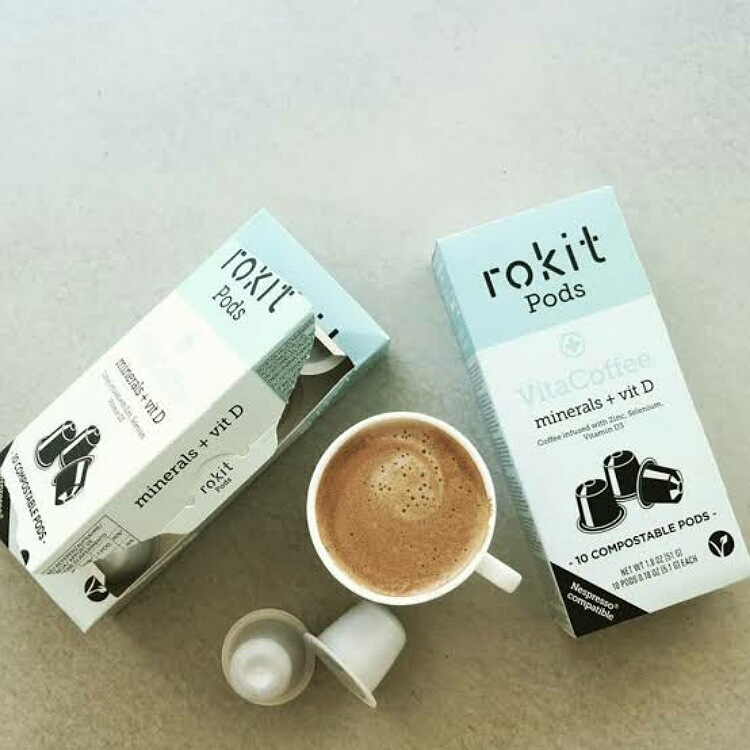Wellness coffee is a new term. It implies vitamin-infused coffee. Who makes it? Is it effective? Do coffee and vitamins mix?
What is the wellness coffee?
Wellness coffee is the new buzzword in the field of health. It means a coffee infused with vitamins. Who will not want a vitamin boost with their cup of morning coffee? But is it effective? And do vitamins and coffee mix well?

Rokit Health from Oxfordshire, the UK manufactures the wellness coffee. It comes as coffee pods which are prepackaged coffee with their own filters. And these pods are compatible with Nespresso machines. Moreover, these pods are of different kinds. These include immunity boost, for sound sleep, good for hair, skin and nails, wellness support, concentration boost, and energy uplift. All of these contain different types and amounts of vitamins, minerals and botanicals.
For instance, the mind boost pods contain 100% Arabica coffee with vitamins B2, B3, B5, B6, and B12. It supports the nervous system and improves mental performance. And the immunity boost pods have 100% Arabica coffee with vitamin B6, B12, D and mineral zinc and it improves immunity. These pods are recyclable, and are available at Tesco at reduced prices this month.
Do vitamins mix well with coffee?
There are no studies on it. But nutritionist Uta Boellinger from Cannelle Nutrition says:
‘On the one hand, if someone is unwilling and unable to make any dietary changes and won’t take any supplements in other forms then perhaps having them in their coffee is the best option.’
However, BANT registered nutritionist Eva Humphries opines:
‘It is also worth noting that synthetic nutrients, such as those typically added to coffee, may not be in the right form for us to fully absorb. So, we could end up in a scenario where we think we are getting 100% of our daily recommended intake of a specific vitamin from that enrich-coffee, but we may only actually absorb 10% of that nutrient.’

Uta is not in favor of coffee and recommends people to lessen it. Those with stress should stop it completely from their daily diet.
Are these supplements helpful?
Uta feels that supplements are good for health. She says:
‘In my clinic I always go for a food-first approach but supplements are not only necessary when there is a deficiency, but can help us see results more quickly as they may be more highly concentrated and easier to include than certain foods.’
Also, read Why is coffee better-tasting in a cafe shop than at home?

But both dietitians feel that one should first consult a nutritionist before starting supplements because one size does not fit all. And moreover, one should check to see whether these supplements would interfere with the medications the person is on. Eva suggests:
‘As a nutritionist, I suggest supplements to my clients for shorter periods of time if there is a very specific need for them. For example, an athlete will likely have nutrient needs so high that it may be a struggle to meet those needs through food alone. In this context, supplements may be useful. On a more general level, it would be more advantageous to get the vitamins we need from food.’
